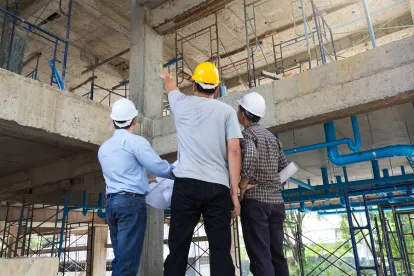A contractor is halfway through the (timely) completion of a project and the owner’s payment is late. Days, weeks go by, and now the contractor is incurring all the costs of the work without any compensation. It might be tempting to simply walk off the job, but bear in mind that legally speaking, that might constitute the “first breach,” even if the owner is late on payment. Enter: the stop work clause.
The optimal stop work clause clearly provides the contractor the right to suspend its work if the owner fails to pay after a certain amount of time, and then get a time extension for any delays resulting from the suspension. The standard AIA language has it all and can be easily tailored to a contract’s payment mechanisms:
"If the Architect does not issue a Certificate for Payment, through no fault of the Contractor, within seven days after receipt of the Contractor’s Application for Payment, or if the Owner does not pay the Contractor within seven days after the date established in the Contract Documents, the amount certified by the Architect or awarded by binding dispute resolution, then the Contractor may, upon seven additional days’ notice to the Owner and Architect, stop the Work until payment of the amount owing has been received. The Contract Time shall be extended appropriately and the Contract Sum shall be increased by the amount of the Contractor’s reasonable costs of shutdown, delay and start-up, plus interest as provided for in the Contract Documents."
Remember, the more details the parties include upfront in the contract, the less there is to argue over later.
Note that there are arguments a contractor can make to justify walking off the job: it was impossible to continue working without payment for labor and materials; the owner’s nonpayment was such an egregious breach that it nullified the contract; or, major subcontractors walked off, too. While some of these may win the day, without clear contract language justifying stopping work, doing so is a gamble.




 />i
/>i

